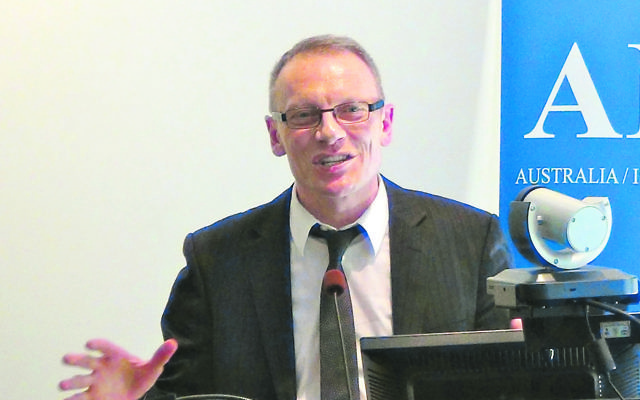Fearing Iran in 2025
THE deal between the P5+1 nations and Iran is essentially “a wager by the United States that Iran will undergo regime change”, because the consequences in the second decade after the agreement would otherwise be dire.
THE deal between the P5+1 nations and Iran is essentially “a wager by the United States that Iran will undergo regime change”, because the consequences in the second decade after the agreement would otherwise be dire.
That is the impression of British Israel policy analyst Professor Alan Johnson, who is visiting Australia as a guest of the Australia/Israel & Jewish Affairs Council (AIJAC).
Before his visit, Johnson took part in a media conference call with Michael Herzog, a former adviser to chiefs of staff under Ehud Barak when he was Israel’s defence minister.
Johnson said Herzog had described the Iran deal as a gambit, even if certain factors were placed to one side.
Herzog had included in those factors the deal’s likely triggering of a regional nuclear arms race, the $US150 million windfall Iran will gain from the lifting of sanctions that it will use to boost its terrorist proxies, the limitations of the inspection regime, and the weakness in US President Barack Obama’s argument that sanctions can be “snapped back” if Iran violates the terms.
Even if all these issues were not considered, and it is accepted Iran has been placed one year away from “breakout” to a nuclear weapon for the next 10 years, Herzog had argued that, in Johnson’s words, “you need to consider the second decade; what does it look like when the sunset clauses kick in and they’ve been able to develop advanced centrifuges in the first decade … that after five years they get to import regular arms and after eight years ballistic technology?
“The second decade is the real worry … we’ve created a nuclear threshold state … this is a wager by America that in the first decade there will be some kind of evolution in the regime and some kind of almost-regime change … America seems to think 10 years is a very long time,” he said.
Johnson said the chances the regime will change are unlikely, nor will the present regime look for a “breakout”, as it does not really need one in the short term, now that it has thrown off international economic pressure.
What is more likely is that “they will use the 10 years to build up their economy, build up their proxies, dominate as much of the region as they can, develop the R&D on the centrifuges … and then choose their geopolitical moment to break out,” Johnson argued.
“I’m an analyst and I do not understand what Obama’s doing,” concluded Johnson, who is senior research fellow at the Britain Israel Communications and Research Centre.
PETER KOHN


comments